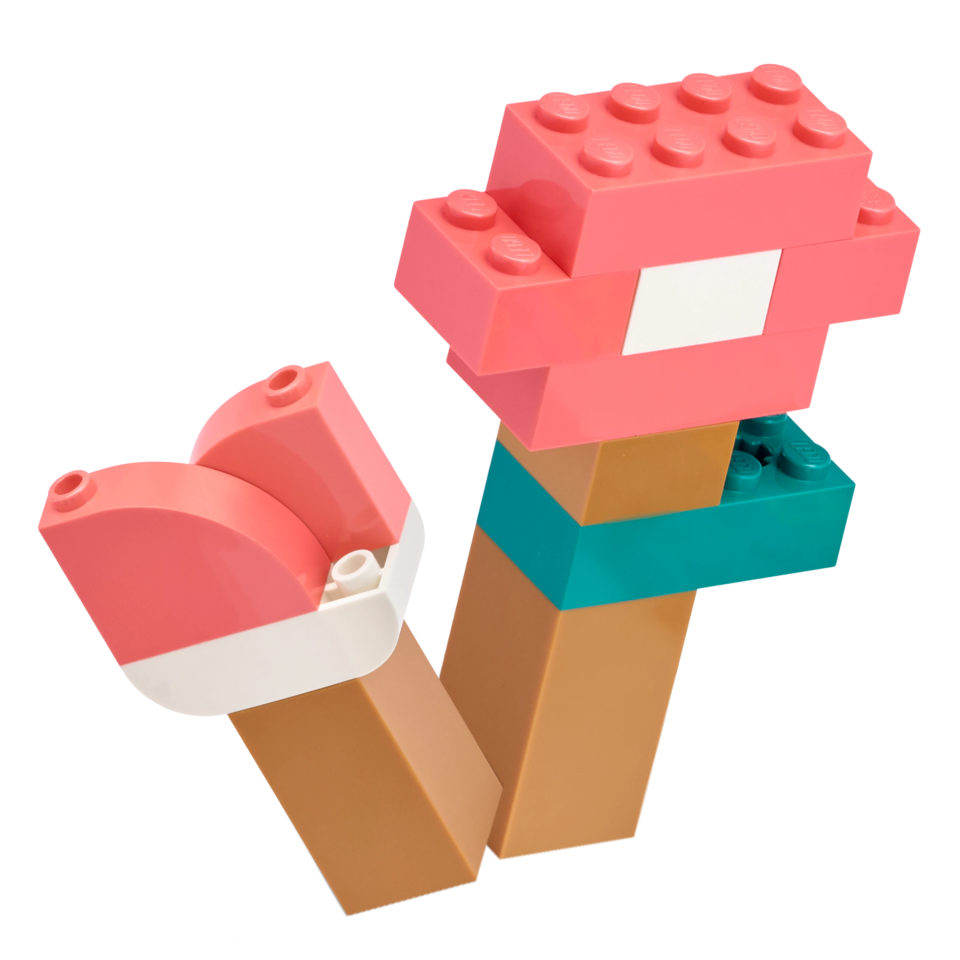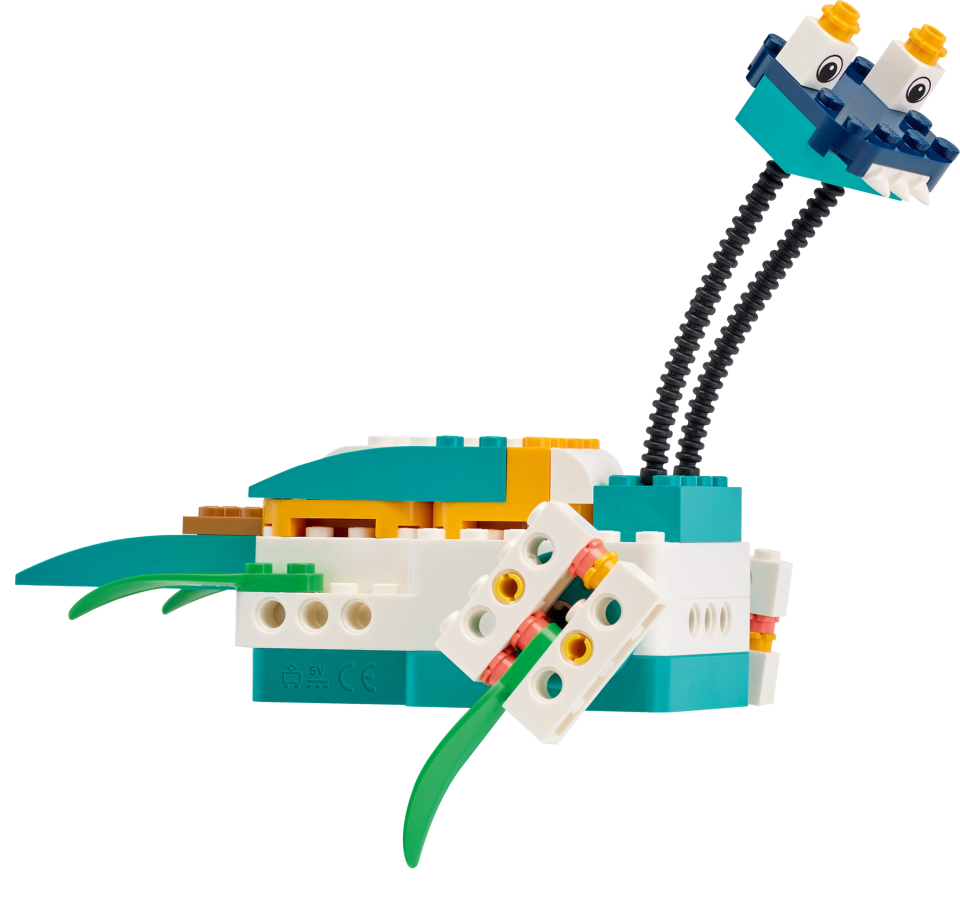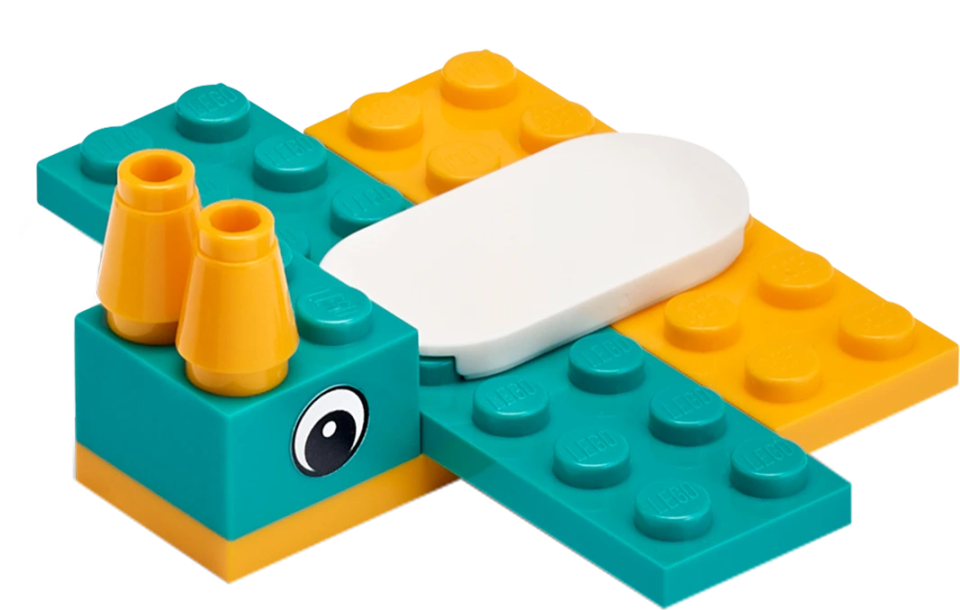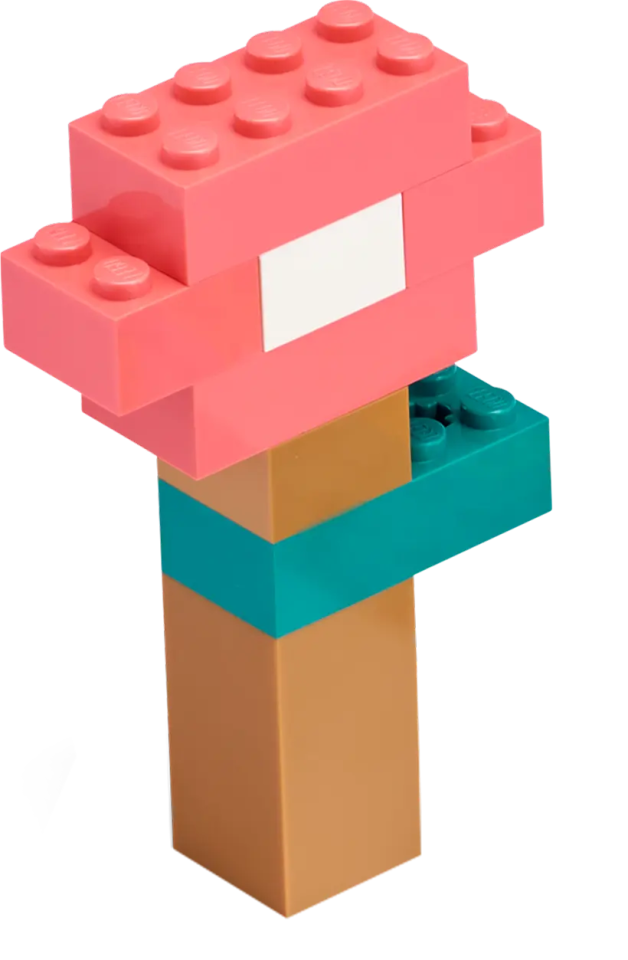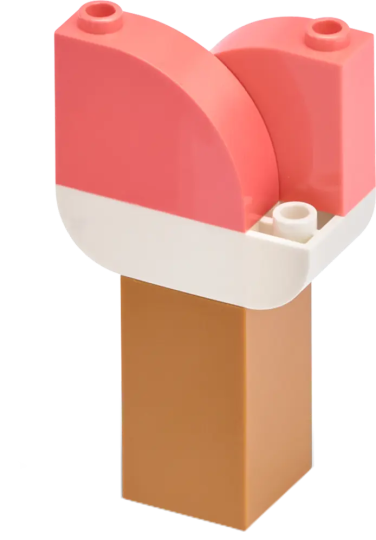Getting Started Project, part D: Collaborating
Explore the importance of collaborating during projects.
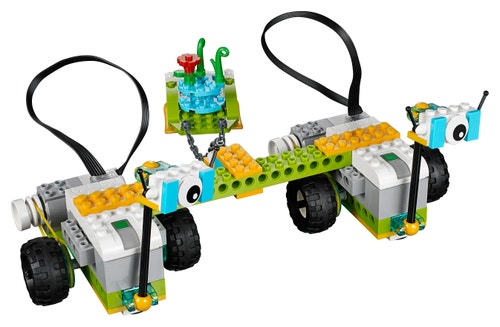
1. Preparation
(30 Minutes)
• For information regarding general preparation, please see the “Classroom
Management” chapter.
• Read through this project so you have a good idea of what to do.
• Prepare to introduce this project to your students.
• Define your expectations and theirs.
• Determine the end result of this project: Everyone should have a chance to build,
program, and document.
• Make sure that timing allows for expectations to be met.
Important
It is recommended that you complete the four Getting Started Projects in a single
sequence. If not, it is recommended that you complete these before moving on
to other projects. This will give the students ample time to explore the materials.
Approximate timing for the four Getting Started Projects is:
• Part A: Milo the Science Rover: 40 min.
• Part B: Milo’s Motion Sensor: 15 min.
• Part C: Milo’s Tilt Sensor: 15 min.
• Part D: Collaborate: 15 min.
2. Explore phase
(3 Minutes)
Now that your rover has found the plant sample, it is time to carry it back. But wait… it might be too heavy! Let’s see if you can collaborate with another rover to move the sample forward together.
3. Create phase
(7 Minutes)
Pair up the teams to complete this final part of the mission:
- Ask them to build the transportation device, physically connecting the two
rovers together. - Let students create their own program strings to move the specimen from
a point A to a point B.
Students could use the program strings shown below.

- When everyone is ready, have the team move their plant sample carefully.
Suggestion
For teams working on their own, note that you can connect up to three Smarthubs to the same tablet. See the “Toolbox” chapter for instructions on how to do that.
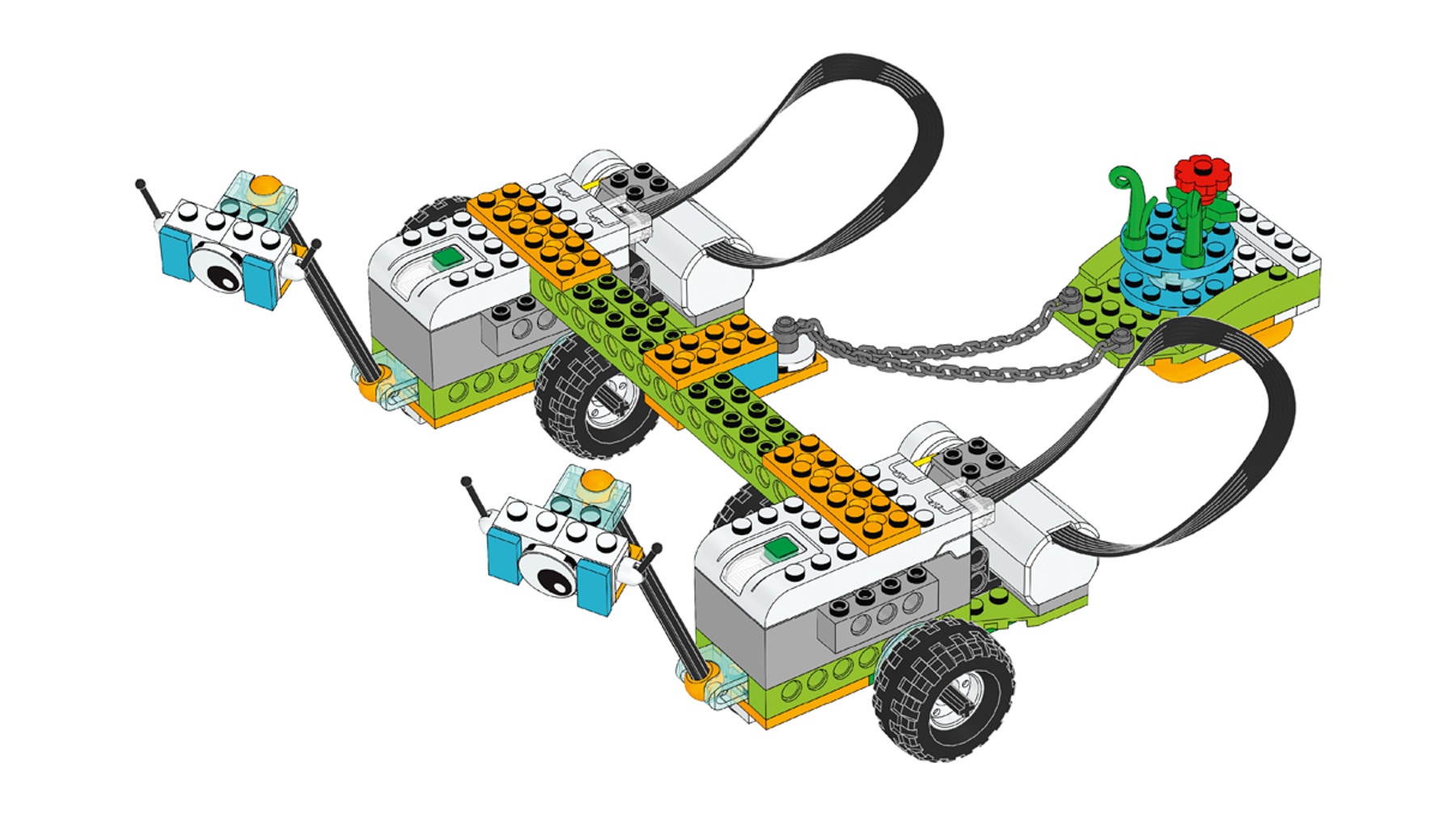
4. Share phase
(5 minutes)
Ask the students to discuss their experiences:
• Why is it important to collaborate when solving a problem?
• Give an example of good communication among teams.
Finally, ask the students to complete their documents with the Documentation tool
while collecting and organising important information.
Important
Because not all the WeDo motors are the same, teams will have to collaborate in
order to succeed.
Teacher Support
Students will:
Create and program a device to move the plant sample.
Document and present a summary of Milo's mission.
LEGO® Education WeDo 2.0 Core Set
WeDo 2.0 Software or Programming App
